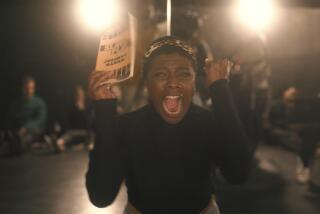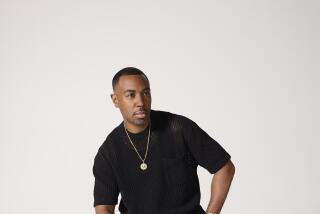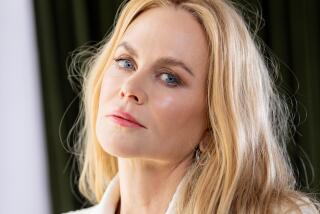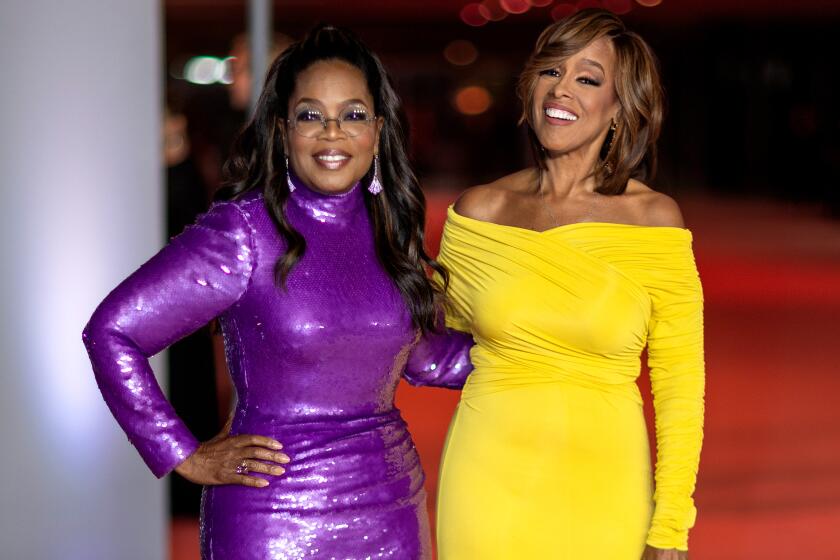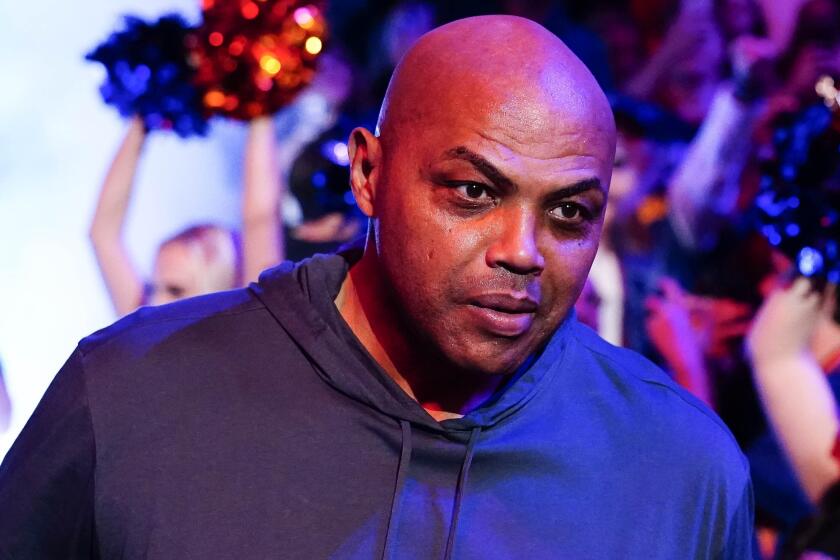Commentary: Matt Damon isn’t racist, the system is; ‘Project Greenlight’ proves it
“Project Greenlight” made headlines this week when it returned to television for the first time in over 10 years, though likely not for reasons HBO would prefer. The series, which debuted in 2001, sparked Internet controversy in its Season 4 premiere when an exchange between Matt Damon and producer Effie Brown about diversity got heated.
The online responses were wide-ranging, sparking equal parts anger and resignation. Twitter also weighed in, going so far as to dub Damon’s actions #Damonsplaining, a personalization of the phenomenon of mansplaining. Perhaps the best analysis of the incident came from University of Alabama professor Kristen Warner who broke down the incident at length, concluding by positing that though “Project Greenlight” is a game, perhaps the experiment should be less about finding individual artists that match the aesthetic they’re looking for and more about finding the best underserved talent who will statistically have a more difficult time making their way in Hollywood.
SIGN UP for the free Essential Arts & Culture newsletter >>
But to really understand what transpired in the episode, you have to look at the series itself. Notably produced by longtime friends and collaborators Matt Damon and Ben Affleck, the show seeks out up-and-coming filmmakers and offers one the opportunity to film a fully funded feature film. In this iteration, the film will have a budget of $3 million and air on HBO, whereas films produced in previous seasons featured limited theatrical runs. During the season premiere, Affleck and Damon, along with a team of producers, set about narrowing down the candidates from 20 to 13 and, ultimately, to one.
The process entails watching the films the candidates have submitted and talking to them about the script they’d be producing, were they selected. The candidates are predominantly white males and each of the three female candidates are parts of a male/female directing combo. As the producers are discussing who their favorite candidates are, Effie Brown, noted film and television producer who recently worked on the critically acclaimed film “Dear White People,” cautioned her fellow producers that it’s worth thinking about diversity as they consider the finalists, as the script they were working with had delicate elements that would need to be addressed. Damon shut Brown’s point down, telling her that diversity was something to be worried about during casting, not during the staffing of the show, going on to say during a follow-up talking head interview that to “change the rules” at the eleventh hour would be against the spirit of the competition and that they should be looking for the best director, not the one they thought would have a diverse point of view.
There are any number of problems with Damon’s statement, not the least of which is the fact that Damon himself says earlier in the episode that the competition is not based solely on merit, that they’d need to meet each director and evaluate whether or not they could inspire leadership in those around them, making it clear that winning “Project Greenlight” is not so much a meritocracy as an evaluation of any number of criteria.
However, the ultimate problem is not with Damon, but rather the system that Damon is working within. Damon giving voice to the idea that diversity has a time and a place is troubling but it isn’t necessarily evil. Arguably, the reason that Damon’s actions were so inflammatory is that he seems like a genuinely nice person. Even when it comes to matters of his bromance with Ben Affleck, Damon has always been the Gallant to Affleck’s Goofus, the quiet family man to Affleck’s tabloid-plagued lifestyle. So to hear one of Hollywood’s “nice guys” try to explain diversity to a woman of color while on camera was chilling, if only because it suggests that if this is how likable Hollywood figures act while being watched, what happens behind the scenes is likely even more unnerving.
Racism and sexism in Hollywood remain so pervasive not because of men like Damon, who benefit from the system whether they like it or not, but from the gatekeepers responsible for clinging to a faulty system of judging talent. There are fewer women and persons of color involved in searches like this because their opportunities are reduced. It’s the same principle that necessitated the adoption of affirmative action, an attempt to even the playing field that is inherently unbalanced. The burden shouldn’t be placed on marginalized individuals to try and overcome the broken system, but on gatekeepers to prioritize hearing and supporting marginalized individuals.
The problem, then, with Damon’s words is that on “Project Greenlight” he is not just an actor, he’s a gatekeeper. And that by trying to silence Effie Brown, he dismisses the voice of someone worth listening to, not only for her experience, but because she was saying, in essence, “There is value to seeking out the voices of those different from us.”
Follow me on Twitter at @midwestspitfire.
ALSO:
Drake leads BET Hip-Hop Awards nominations
Nickelodeon set to bring back classic ‘90s programming
Women and minority TV directors rank low among first-time hires, study shows
More to Read
The complete guide to home viewing
Get Screen Gab for everything about the TV shows and streaming movies everyone’s talking about.
You may occasionally receive promotional content from the Los Angeles Times.
